Contents – Climate of fear: The silencing of the planet’s indigenous peoples
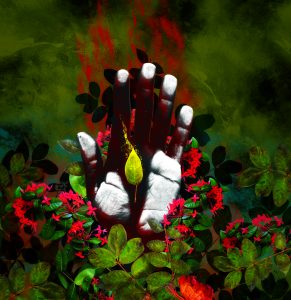
The Autumn issue of Index magazine focuses on the struggle for environmental justice by indigenous campaigners. Anticipating the United Nations Climate Change Conference (COP26), in Glasgow, in November, we’ve chosen to give voice to people who are constantly ignored in these discussions.
Writer Emily Brown talks to Yvonne Weldon, the first aboriginal mayoral candidate for Sydney, who is determined to fight for a green economy. Kaya Genç investigates the conspiracy theories and threats concerning green campaigners in Turkey, while Issa Sikiti da Silva reveals the openly hostile conditions that environmental activists have been through in Uganda.
Going to South America, Beth Pitts interviews two indigenous activists in Ecuador on declining populations and which methods they’ve been adopting to save their culture against the global giants extracting their resources.
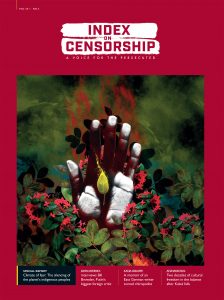 Cover of Index on Censorship Autumn 2021 (50-3)[/caption]
Cover of Index on Censorship Autumn 2021 (50-3)[/caption]
A climate of fear, by Martin Bright: Climate change is an era-defining issue. We must be able to speak out about it.
The Index: Free expression around the world today: the inspiring voices, the people who have been imprisoned and the trends, legislation and technology which are causing concern.
Pile-ons and censorship, by Maya Forstater: Maya Forstater was at the heart of an employment tribunal with significant ramifications. Read her response the Index’s last issue which discussed her case.
The West is frightened of confronting the bully, by John Sweeney: Meet Bill Browder. The political activist and financier most hated by Putin and the Kremlin.
An impossible choice, by Ruchi Kumar: The rapid advance of Taliban forces in Afghanistan has left little to no hope for journalists.
Words under fire, by Rachael Jolley: When oppressive regimes target free speech, libraries are usually top of their lists.
Letters from Lukashenka’s prisoners, by Maria Kalesnikava, Volha Takarchuk, Aliaksandr Vasilevich and Maxim Znak: Standing up to Europe’s last dictator lands you in jail. Read the heartbreaking testimony of the detained activists.
Bad blood, by Kelly Duda: How did an Arkansas blood scandal have reverberations around the world?
Welcome to hell, by Benjamin Lynch: Yangon’s Insein prison is where Myanmar’s dissidents are locked up. One photojournalist tells us of his time there.
Cartoon, by Ben Jennings: Are balanced debates really balanced? Ask Satan.[/vc_column_text][/vc_column][/vc_row][vc_row][vc_column][vc_custom_heading text=”Special Report” font_container=”tag:h2|font_size:22|text_align:left”][/vc_column][/vc_row][vc_row][vc_column][vc_column_text]
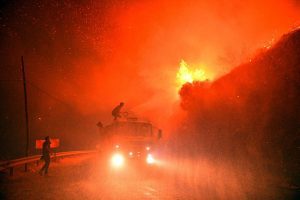
Credit: Xinhua/Alamy Live News
It’s not easy being green, by Kaya Genç: The Turkish government is fighting environmental protests with conspiracy theories.
It’s in our nature to fight, by Beth Pitts: The indigenous people of Ecuador are fighting for their future.
Respect for tradition, by Emily Brown: Australia has a history of “selective listening” when it comes to First Nations voices. But Aboriginal campaigners stand ready to share traditional knowledge.
The write way to fight, by Liz Jensen: Extinction Rebellion’s literary wing show that words remain our primary tool for protests.
Change in the pipeline? By Bridget Byrne: Indigenous American’s water is at risk. People are responding.
The rape of Uganda, by Issa Sikiti da Silva: Uganda’s natural resources continue to be plundered.Cigar smoke and mirrors, by James Bloodworth: Cuba’s propaganda must not blight our perception of it.
Denialism is not protected speech, by Oz Katerji: Should challenging facts be protected speech?
Permissible weapons, by Peter Hitchens: Peter Hitchens responds to Nerma Jelacic on her claims for disinformation in Syria.
No winners in Israel’s Ice Cream War, by Jo-Ann Mort: Is the boycott against Israel achieving anything?
Better out than in? By Mark Glanville: Can the ancient Euripides play The Bacchae explain hooliganism on the terraces?
Russia’s Greatest Export: Hostility to the free press, by Mikhail Khordokovsky: A billionaire exile tells us how Russia leads the way in the tactics employed to silence journalists.
Remembering Peter R de Vries, by Frederike Geeerdink: Read about the Dutch journalist gunned down for doing his job.
A right royal minefield, by John Lloyd: Whenever one of the Royal Family are interviewed, it seems to cause more problems.
A bulletin of frustration, by Ruth Smeeth: Climate change affects us all and we must fight for the voices being silenced by it.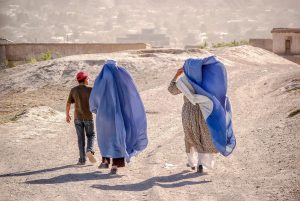 Credit: Gregory Maassen/Alamy[/caption]
Credit: Gregory Maassen/Alamy[/caption]
The man who blew up America, by David Grundy: Poet, playwright, activist and critic Amiri Baraka remains a controversial figure seven years after his death.
Suffering in silence, by Benjamin Lynch and Dr Parwana Fayyaz The award-winning poetry that reminds us of the values of free thought and how crucial it is for Afghan women.
Heart and Sole, by Mark Frary and Katja Oskamp: A fascinating extract gives us an insight into the bland lives of some of those who did not welcome the fall of the Berlin Wall.
Secret Agenda, by Martin Bright: Reforms to the UK’s Official Secret Act could create a chilling effect for journalists reporting on information in the public interest.
“We know more about what is happening to protestors in Myanmar than in Cuba”
[vc_row][vc_column][vc_column_text]
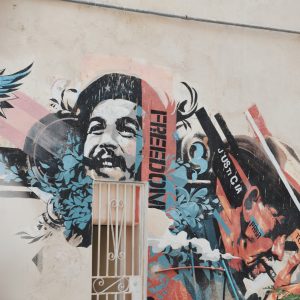
Mural showing Che Guevara in Havana, Cuba
Index on Censorship was established half a century ago to be a voice for those writers and scholars who lived under repressive regimes. We were formed to be a space to publish their works and, just as crucially, to be their advocates at home and abroad. Using their words and experiences to shine a spotlight on the realities of authoritarian regimes wherever they were a threat to free expression.
Since our launch we have documented incidents in countries as diverse as Niger and Belarus, China and Pakistan, Palestine and Myanmar. We campaign for the right to free expression wherever in the world it is being undermined, including in Europe and the US. Most importantly, we support brave journalists, activists, artists and writers wherever and whenever we can.
Index is not driven by an ideology, we care little if a regime claims the mantle of the left or right. Rather, our actions are guided by the deepest of convictions that totalitarianism and repression anywhere in the world undermine our collective rights to free expression. In other words – an attack on one is an attack on all – and we are on the side of those being persecuted.
Which brings me to Cuba. Index first wrote about the Cuban regime’s efforts to undermine free speech and free expression in 1980. In the intervening 40 years we have commissioned dozens of journalists, dissidents and artists to report on the lived reality on the ground. I think it’s fair to say that peoples lived experience in Cuba has not changed for the better in that time.
This month we saw yet more protests on Cuban streets, with people protesting in at least 15 different towns and cities, from San Antonio de los Banos to Palma Soriano. It has been reported that five people were killed in the protests. More than 500 people are currently missing thought to be detained by the regime, according to the Center for a Free Cuba. Many more have been arrested and charged. Such are the restrictions on the ground that we honestly don’t know how many people have been arrested, what they have been charged with and where they are.
The reality is we know more about is happening to protestors in Myanmar than we do in Cuba. Journalists are being routinely arrested and threatened. And the regime is focused not on responding to the issues which have sparked the dissent – but rather initiating a crackdown. This is not a utopian society – it is a repressive regime, which is seeking to silence those who disagree.
The Cuban government have done an amazing job in romanticising their actions – building a global movement of solidarity based on the images of Che Guevara and the socialist speeches of Fidel Castro. But the reality has never matched this romantic vision. RSF has ranked Cuba 171 of all countries in the 2021 World Press Freedom Index. The Committee to Protect Journalists ranks Cuba as one of the 10 most censored countries in the world. And Freedom House designates Cuba as ‘not free’ – scoring 13 out of 100 for political rights and civil liberties.
Cuba is a repressive regime – it works to supress the human rights of its citizens and Index on Censorship will continue to support Cuban dissidents as they seek to shine a light on the authoritarian actions of the Cuban regime.[/vc_column_text][/vc_column][/vc_row][vc_row][vc_column][three_column_post title=”You may also want to read” category_id=”41669″][/vc_column][/vc_row]
The world must look beyond Cuba’s carefully manufactured PR image
[vc_row][vc_column][vc_single_image image=”117089″ img_size=”full” add_caption=”yes”][vc_column_text]The Cuban revolution has always been adept at PR. Even in the early days, before the revolution succeeded in overthrowing the American backed dictator Fulgencio Batista, Cuban rebel leader Fidel Castro was a master of propaganda.
When the American journalist Herbert Matthews visited the Sierra Maestra in 1957 and sat down with Castro for an interview, the guerrilla chief fooled Matthews into thinking rebel forces were stronger than they were by marching the same columns of men past at various intervals and by having ‘messengers’ report the existence of non-existent rebel units.
“From the look of things, General Batista cannot possibly hope to suppress the Castro revolt,” wrote The New York Times’ correspondent in his subsequent dispatch.
Over the ensuing half a century, Havana’s propaganda has been equally powerful, fostering an image of Cuba abroad as a besieged outpost against United States aggression; as a beacon of healthcare and education; and as a country in which children are taught to live lives of heroic self-sacrifice in emulation of revolutionary icon Ernesto ‘Che’ Guevara (who is the subject of a cult of personality in Cuba).
For those living at a great distance from the Cuban reality, it is easy to be fooled by the idealistic penumbra that surrounds the Cuban revolution. The arbitrary arrests, the grinding poverty, the tentacles of the state that reach into every aspect of daily life – all are submerged in the minds of foreign admirers beneath a tide of romantic kitsch.
Yet as thousands of Cubans take to the streets in unprecedented protests against the dictatorship, it is important that Western human rights and free speech organisations do not allow the distorted image of Cuba as a tropical socialist outpost against capitalism to muddy their thinking.
Many, thankfully, have not. Each year Amnesty International produces a detailed and damning report on the human rights situation in Cuba. In its 2020 report, Amnesty noted that the authorities in Havana “continued to repress all forms of dissent, including by imprisoning independent artists, journalists and members of the political opposition”. Since the mass protests began on 11 July 2021, Amnesty has been closely monitoring the situation, publishing regular updates as to the whereabouts of Cuban activists and dissident voices.
Human Rights Watch has produced similarly comprehensive reports in its coverage of the deteriorating situation on the island for opponents of the dictatorship. Reporters Without Borders (RSF) has condemned the Cuban government’s repression of citizen protests.
Yet despite the mass of evidence that the government in Havana is an egregious violator of human rights, evidence that is accumulating in real time; and despite the landmark protests by thousands of Cubans who risk imprisonment simply for taking to the streets, one senses that Cuba is unlikely to become a cause célèbre activists in the way that, say, Palestine has become so, or even Belarus or Myanmar.
Worse, some left-wing organisations in the United States and Britain, ostensibly dedicated to human rights and firmly embedded within the social democratic institutions within their countries, have sided openly with the dictatorship. The Democratic Socialists of America (DSA), Young Labour, Black Lives Matter and the Progressive International have all released statements in support of the dictatorship in recent days.
It is vital that organisations dedicated to free speech and human rights continue to draw attention to repressive conditions and abuses inside Cuba. However it is also important that liberals and progressives take the reports that these organisations produce seriously – as seriously as they do when the same accusations are made of less fashionable (or PR-savvy) dictatorships.
During the ongoing Covid-19 pandemic, many liberal and progressive voices were quick to jump on news stories featuring battalions of heroic Cuban doctors sent around the world to aid the anti-pandemic efforts. It would be nice if such interest in Cuba wasn’t so fleeting; if it looked beyond Havana’s carefully manufactured PR operation; and if it expressed itself for once by actually listening to the Cuban people and what they want.[/vc_column_text][/vc_column][/vc_row][vc_row][vc_column][three_column_post title=”You may also want to read” category_id=”7874″][/vc_column][/vc_row]

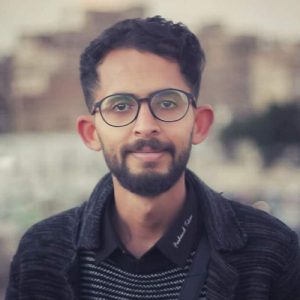 Yemeni artist Thiyazen Al-Alawi uses his craft to shed light on the destructive situation in Yemen through street art campaigns. He hopes to inform the public of what the war has done to his homeland.
Yemeni artist Thiyazen Al-Alawi uses his craft to shed light on the destructive situation in Yemen through street art campaigns. He hopes to inform the public of what the war has done to his homeland.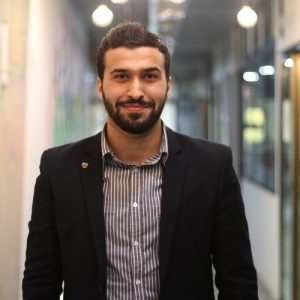 Moe Moussa is a journalist, podcaster, poet, and the founder of the Gaza Poet Society. He uses various forums and mediums to amplify the voices of Palestinians.
Moe Moussa is a journalist, podcaster, poet, and the founder of the Gaza Poet Society. He uses various forums and mediums to amplify the voices of Palestinians.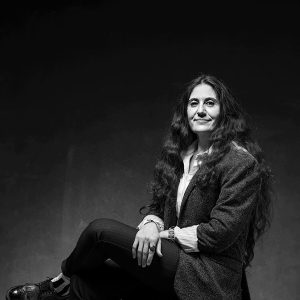 Fatoş İrwen is a Kurdish artist and teacher from Diyarbakır, Turkey working with a variety of materials and techniques.
Fatoş İrwen is a Kurdish artist and teacher from Diyarbakır, Turkey working with a variety of materials and techniques.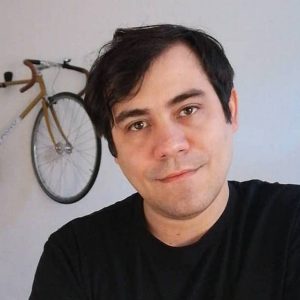 Hamlet Lavastida has been described as a political activist by way of art. Lavastida uses his art to document human rights abuses in Cuba and to criticise Cuban authorities.
Hamlet Lavastida has been described as a political activist by way of art. Lavastida uses his art to document human rights abuses in Cuba and to criticise Cuban authorities.